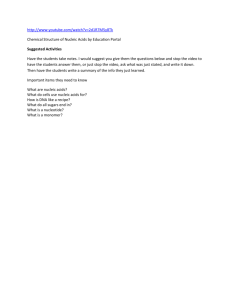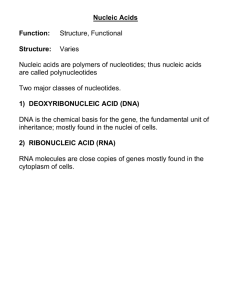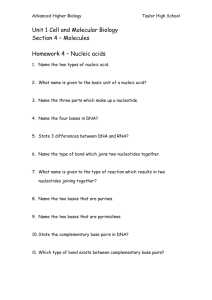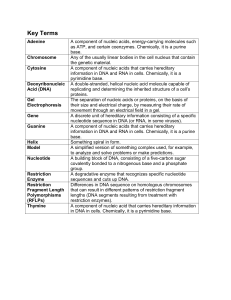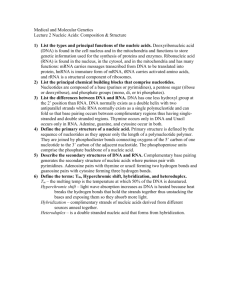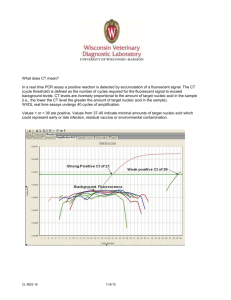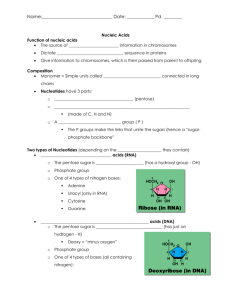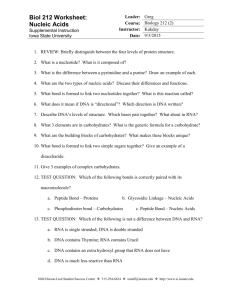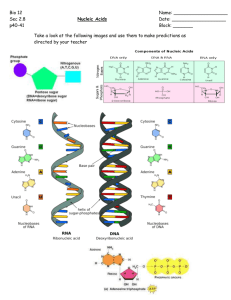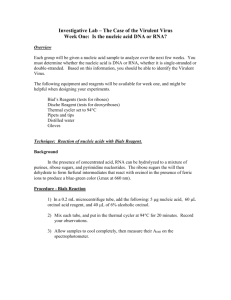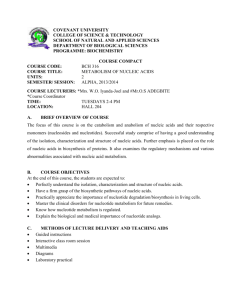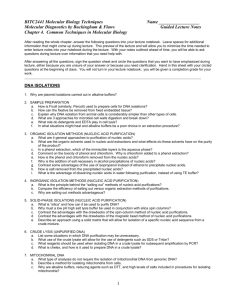Nucleic Acid MCQ Test: Biology Questions & Answers
advertisement
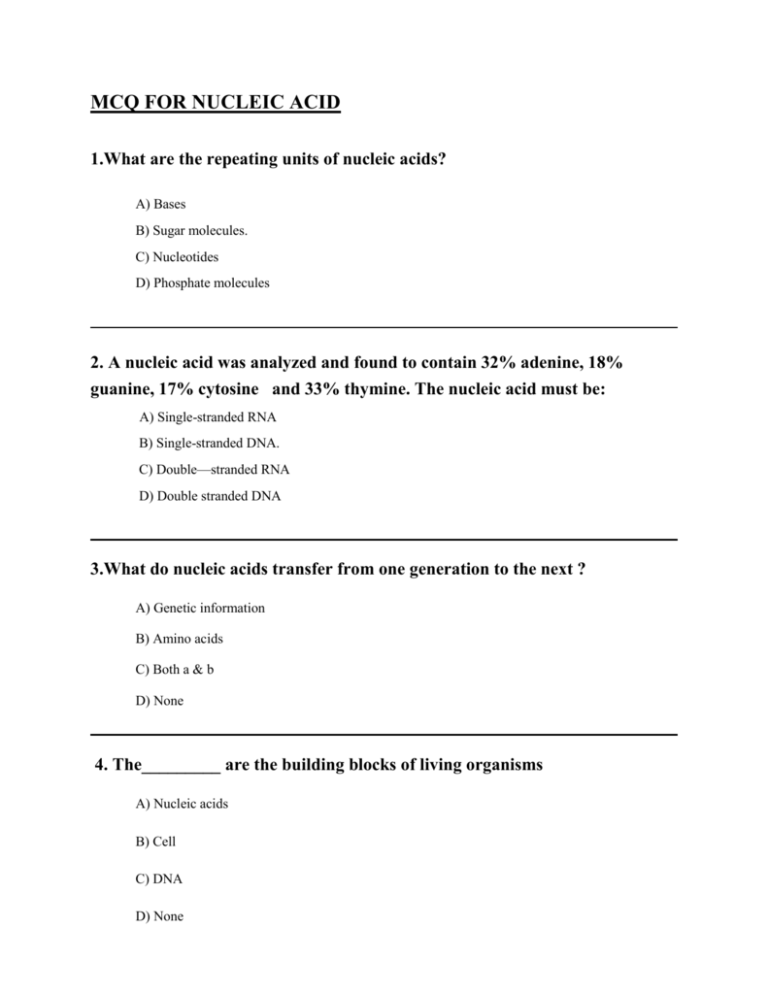
MCQ FOR NUCLEIC ACID 1.What are the repeating units of nucleic acids? A) Bases B) Sugar molecules. C) Nucleotides D) Phosphate molecules 2. A nucleic acid was analyzed and found to contain 32% adenine, 18% guanine, 17% cytosine and 33% thymine. The nucleic acid must be: A) Single-stranded RNA B) Single-stranded DNA. C) Double—stranded RNA D) Double stranded DNA 3.What do nucleic acids transfer from one generation to the next ? A) Genetic information B) Amino acids C) Both a & b D) None 4. The_________ are the building blocks of living organisms A) Nucleic acids B) Cell C) DNA D) None 5. Where are the nucleic acids found.? A) Nucleus of cells. B) Bacteria C) Viruses D) All above 6. Which one of them is nucleic acid ? A) Deoxyribonucleic acid B) Ribonucleic acid C) Artificial nucleic acid analogs D) All of them 7. Nucleotides and nucleic acids concentration are often also expressed in terms of A) ng B) mg C) meq D) OD at 260 nm 8. A nucleoside consists of A) Nitrogenous base B) Purine or pyrimidine base + sugar C) Purine or pyrimidine base + phosphorous D) Purine + pyrimidine base + sugar + phosphorous 9. Scientists synthesize fragments of DNA and RNA using a process known as polymerase chain reaction (PCR). A) True B) False 10. The four nucleotides are adenine (A), cytosine (C), guanine (G) and thymine (T). A) True B) False 11. The nucleotide genome consists of the sequence of nucleic acid that encodes genetic information on DNA. A) True B) False 12.Where does translation take palce A) Cytosol B) Nucleus C) Smooth endoplasmic reticulum D) Ribosomes 13. During DNA replication, DNA primase is required as it adds a short DNA primer for replication A) TRUE B) Erythromycin C) Chloramphenicol D) FALSE 14. Single Nucleotide Polymorphisms are the most common type of polymorphism A) FALSE B) O6-Ethylcytosine C) Adenine D) TRUE KANU.K.VASAVA
